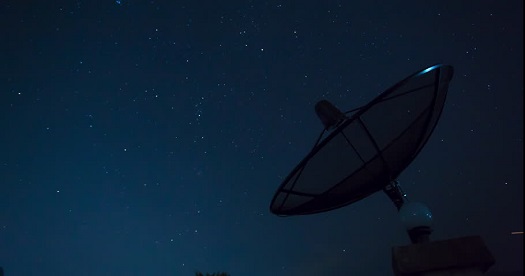
When we found them, we were not thinking of our history, even while we were watching theirs.
We were thinking of visitation, of proof of life, of how similar or different they were from us. We were thinking of little green men and ominous grays and the slim possibility that the similarity in their planetary structure might mean similarity in species structure as well. Maybe Star Trek would be proven right after all, that the greatest variation would be in skin color or pointiness of forehead, that something ape-like would win the evolutionary struggle on every sphere, if only to reaffirm our perceived inevitability. We were not prepared for the victory of their cephalopods or cetaceans or proboscideans, much less the co-existence of all three. We were not prepared for how long or how carefully they had been watching us.
We wanted them to show us our future, to show us possibilities. To show us solutions for problems we had not solved, to show us the way forward, to show us how to get to other planets and survive and thrive, to live long and prosper, to be fruitful and multiply among the stars. Instead, they showed us our past.
It turns out the speed of light is an absolute barrier after all. There would be no real-time two-way street, no communication that built relationships between live members of contrasting planets forty light-years across the universe. We opened with a simple hello and it was eighty years before we got hi back and by that time the first hello’s author was on her deathbed in a beepy antiseptic corner with barely the muscles left to smile. And it’s not like they were all living to four-hundred over there, that was one of the lessons that was slow to sink in, that lifespan is meant to be finite, that something else always gets you in the end, that appreciating what you’ve been given requires not always ungratefully trying to negotiate the terms. But that came later, much later, after the videos.
The realization first occurred to us when we realized that the forty-year lag-time meant they were watching our past in real time while we watched theirs. We quickly surmised that the opportunity of space travel, of interstellar communication if not physical relocation, was actually a question of time travel. Until we could summon a craft ready to traverse forty years into the unknown with no hope of return, we would have to settle for the slow and unsettling dialogue. It actually took us about a hundred and sixty years to realize we could send questions rapid-fire, that we didn’t actually have to wait for a response before sending a follow-up question, that we could bombard them with inquiries in the hopes that they would respond in turn. I wish I could say this was borne from ingenuity, but it was much more that eighty years after hi back, the second response was somewhere between “what?” and “I don’t understand.” And we just got fed up and greedily asked them to send us blueprints for their faster-than-light ships, which of course they didn’t have. But if we kept our inquiries short and declarative, they could respond in sequence and then, at least for the next generation, there would be news from beyond every day.
By the time they got around to asking whether we would like to see our past, their existence had been inculcated as both a regular part of life and a mammoth disappointment. We had spent so long imagining interstellar space travel that we’d assumed this would immediately follow contact with them, especially when it was immediately obvious that they were more advanced than we were. Which made it all the more surprising that it took them centuries to reveal the quality of their telescopes, the sophistication of their listening devices. But of course, they were smarter and more experienced. They knew it would take time to build up to the idea of viewing the reality of what they’d been watching all along. Turns out the prime directive, while not an absolute, was going in sort of the right direction. It is up to the weaker, less intelligent “civilization” to do the asking, to initiate. There’s too much potential for abuse the other way.
Before we knew about the recording device, when they threw in some idle commentary about when we sent the message or we asked them about things that were half a lifetime ago to the recipients, some of our philosophers got excited about what could be seen through this reflected lens. If we could ever, however frustrating it might be, make contact with species a hundred, two hundred, five hundred light-years away, then we could dip our oars deeper into the tide of what came before. Think of the possibilities! they declared. Imagine what we could learn. No longer would victors write the history books, for the books would write themselves, in technicolor video no less. Of course, the sad irony was that whenever contact was initiated and all that came before would be lost to history, to this process. We could only get history, only ask them to reflect our past back to us, once were dialoguing.
That, of course, proved to be untrue. It presumed that we were the more advanced tribe, that no one had been watching all along.
Their picture was incomplete, of course. They did not have ships just offshore from our atmosphere, hovering in some sort of invisible orbit. They did not have anyone anywhere close. They were locked into their fixed relative perspective, only a particular angle on our planet from the ships in their own star system. But oh, the rotation of planets! Every hour, we would show them a new face, a new vantage full of people and struggle and mistakes and triumphs. It was almost enough to make us believe that there was purpose, real intent behind the rotation of planets. That they spun to ensure that from any angle, everything could be seen.
It was not everything, of course. It was not an on-demand library of every event in history. For the first few centuries, in fact, they couldn’t even penetrate buildings. It was only the outdoor events that were recorded, only the declarations in full view of the sun that made it to the archive. It was enough, though, to get the gist. It always was. It turns out what mattered to us most was not the speeches whose memory still imperfectly trickled to our contemporary collective imagination, not the battles and names we’d grown up studying. It was the way we were, writ large, the toiling in the fields and the minor atrocities of daily living. An anonymous rape in a back alley. A botched robbery on a lonely dirt highway. The distribution of smallpox blankets at a formal trading session.
For a long time, we’d known and internalized that witnessed horror held so much more sway than mere described horror. That the thrall of the camera, much less with audio, created a truth we could not bear to deny or resist. We were wholly unprepared for the impact of this reality applied to a history before we’d invented our own means of recording.
It is vital to stress that they offered this with utmost neutrality. There were a mirror, not a documentary filmmaker. They showed us garden weddings and spontaneous beachside births as well, we were awash in humanity’s humanity as well as its inhumanity. But the overall message was somehow clearer than our own extensive efforts to self-monitor, to spread surveillance to every corner of our own little sphere. Someone is watching. Someone has always been watching. Someone far smarter sees what you are doing and so might your grandchildren’s grandchildren.
No longer was history a mere abstraction, something to be reframed and repainted. It was something living and breathing, in better quality than we could produce ourselves, even after its precarious journey across the empty echoes of space.
It made us take our present more seriously, as we pictured it re-refracted through the rebound from our newest neighbors, offered to our descendants with quiet condemnation, a condemnation made all the quieter for arriving without commentary. We could no longer use past precedent as a justification. It was future understanding we needed to appeal to.
We wanted them to send us blueprints for overcoming mortality and the speed of light. Instead, they showed us our past. And it was the only way we could finally learn how to build a brighter future. Not one of eternal life or instant travel. But one, more vitally, that future generations could be proud of. Or at least less ashamed.


